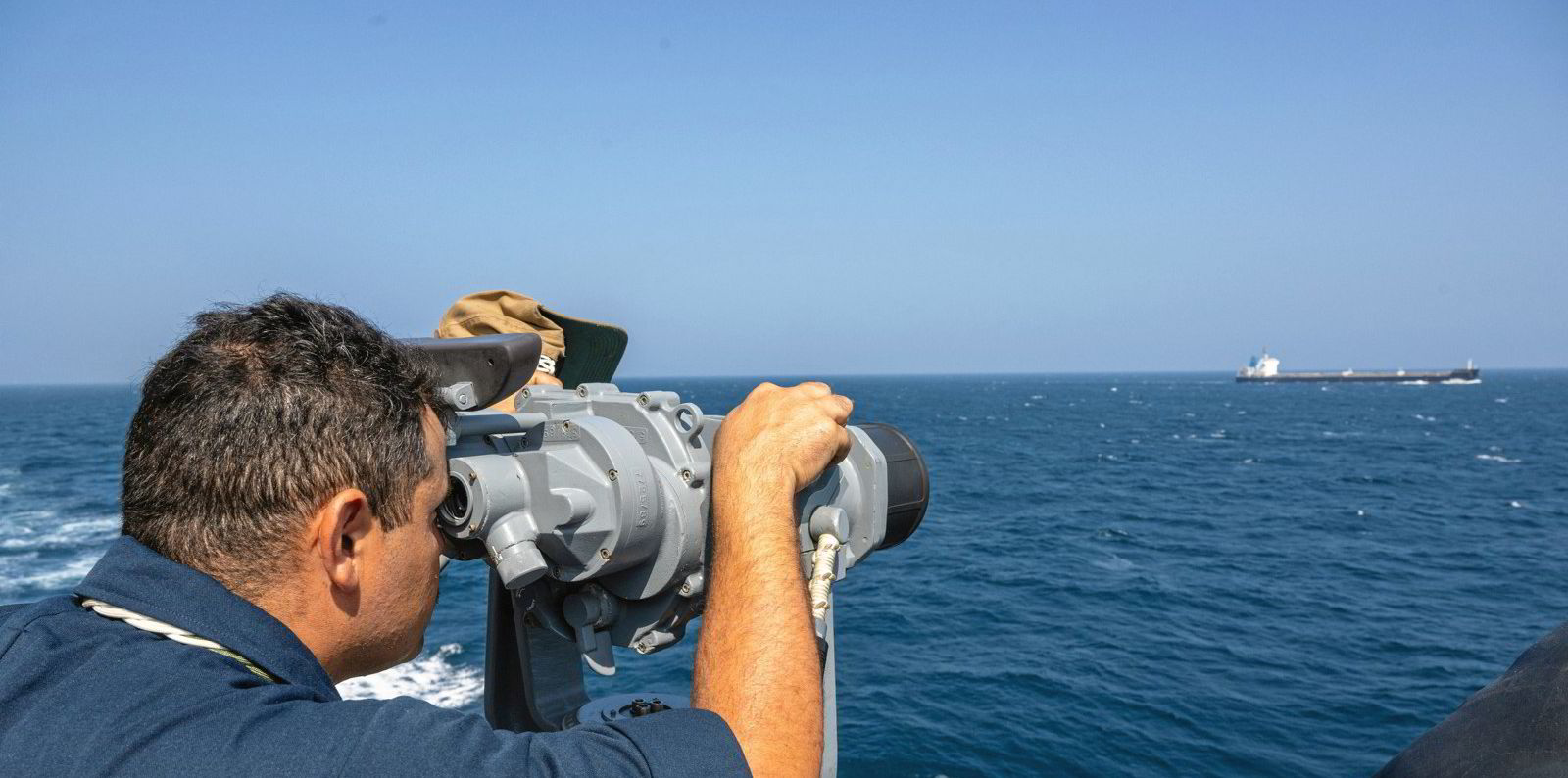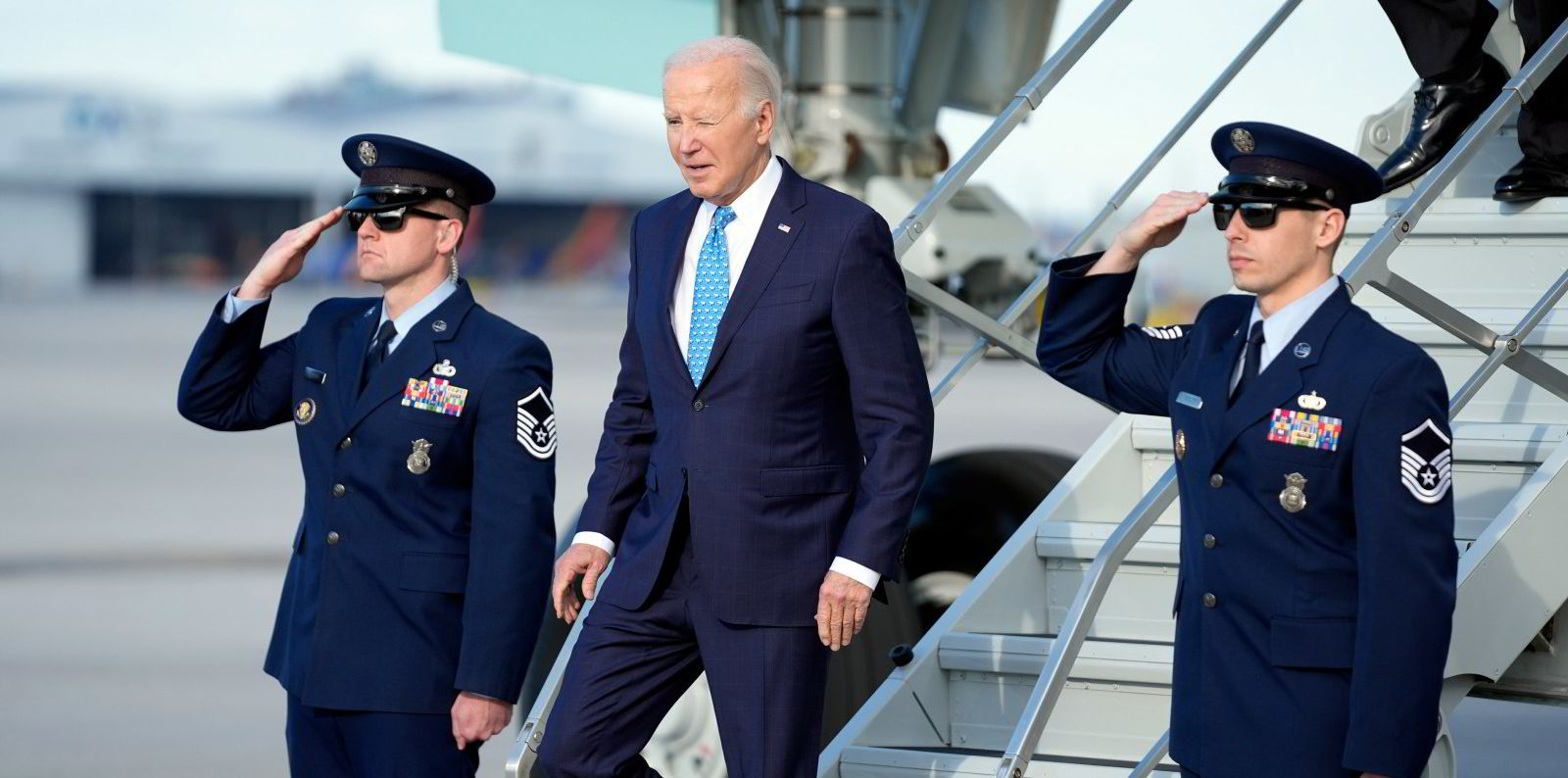Middle East maritime security expert Ian Ralby stood before lawmakers in the US Congress on Tuesday with a nuanced message.
But nuances have a way of getting lost in today’s Washington.
The chief executive of advisory IR Consilium told a US House of Representatives subcommittee that, yes, the US should retaliate against the Houthis for their attacks on America’s commercial and naval ships, but not just for the sake of striking back.
“We need to strike back, but our way of striking back has to be geared towards providing benefit to the US public,” he said. “If we just want to strike back for the sake of striking back, we may find ourselves actually making things worse, and that’s unfortunately what seems to be happening right now.”
He told the House Subcommittee on Coast Guard and Maritime Transportation that the US Navy is very good at doing its job, but that mission is backfiring against a foe that Ralby said wants a conflict with America and will continue to attack shipping even when every missile or drone is destroyed.
US congressman Brian Mast, a Republican from Florida, wasn’t having any of it.
“I don’t agree with liberal mentality like that,” he responded.
“If somebody hits us, there’s going to be a reckoning, and we’re going to hit back, and that’s just the American way and it should always be the American way.”
The US is at a crossroads as Houthi attacks on ships in the Red Sea and Gulf of Aden combine with a widening Middle East crisis, which has seen President Joe Biden vow to respond to an attack by Iranian-backed militants that killed American soldiers in a drone attack in Jordan.
That deadly attack came more than a week after the Washington Post reported that the Biden administration was preparing for what was expected to be a sustained campaign against the Houthis, who are backed by Iran, after strikes on targets in Yemen failed to deter assaults that have increasingly targeted vessels with connections to the US and UK.
But amid increasing calls for robust action, concerns are mounting that a US military response may not be the answer that makes the key corridor linking the Red Sea to the Indian Ocean safe again.
Bud Darr, MSC Group’s executive vice president for maritime policy and government affairs, told the congressional committee on Tuesday that the “kinetic responses” to Houthi attacks are treating a symptom.
Diplomacy over kinetics
“Ultimately, to keep sea lanes peaceful and open requires a strong element of diplomacy that maybe we shouldn’t expect to shoulder on behalf of the United States Navy or other navies, but rather the diplomats and government leaders that support that,” he said.
Darr, an American, said “the shooting has to stop” for liner operators like his Swiss company’s MSC Mediterranean Shipping Company to feel safe enough to send seafarers through the Red Sea and Gulf of Aden again.
And Ralby, who is also a non-resident senior fellow at the Center for Maritime Strategy think tank, believes the US shooting at Houthis is exactly what the militant group wants.
The Biden administration has consistently emphasised that it is not in a state of war with the Houthis. However, Ralby pointed out that the Yemen-based group has been propagating a narrative suggesting a conflict with the US and the UK for the past decade.
“If the US continues to be the face of the counter-Houthi narrative and the counter-Houthi operations, others will continue to be inspired to join the Houthis and potentially could join them in attacking shipping as well,” Ralby told Congress.

The Houthis control a major swathe of Yemen, including the capital of Sanaa, and Ralby said US foreign policy towards the country has failed because Washington has not bolstered the country’s government against the militant group.
He said “hitting back” should come in the form of empowering Yemen’s government against the Houthi threat, the way the US has done in Ukraine.
But at Tuesday’s hearing of the Republican-controlled subcommittee, Mast appeared to conflate the Houthis with the Yemeni government when he questioned “taking them off the terrorist organisation list” after providing them with humanitarian aid.
“The fact that there is still confusion in critical circles around the world as to whether the Houthis are the government of Yemen or not is part of the problem,” Ralby said.
The first step, he said, is understanding Yemen.
But for now, it looks like the shooting is going to continue.





